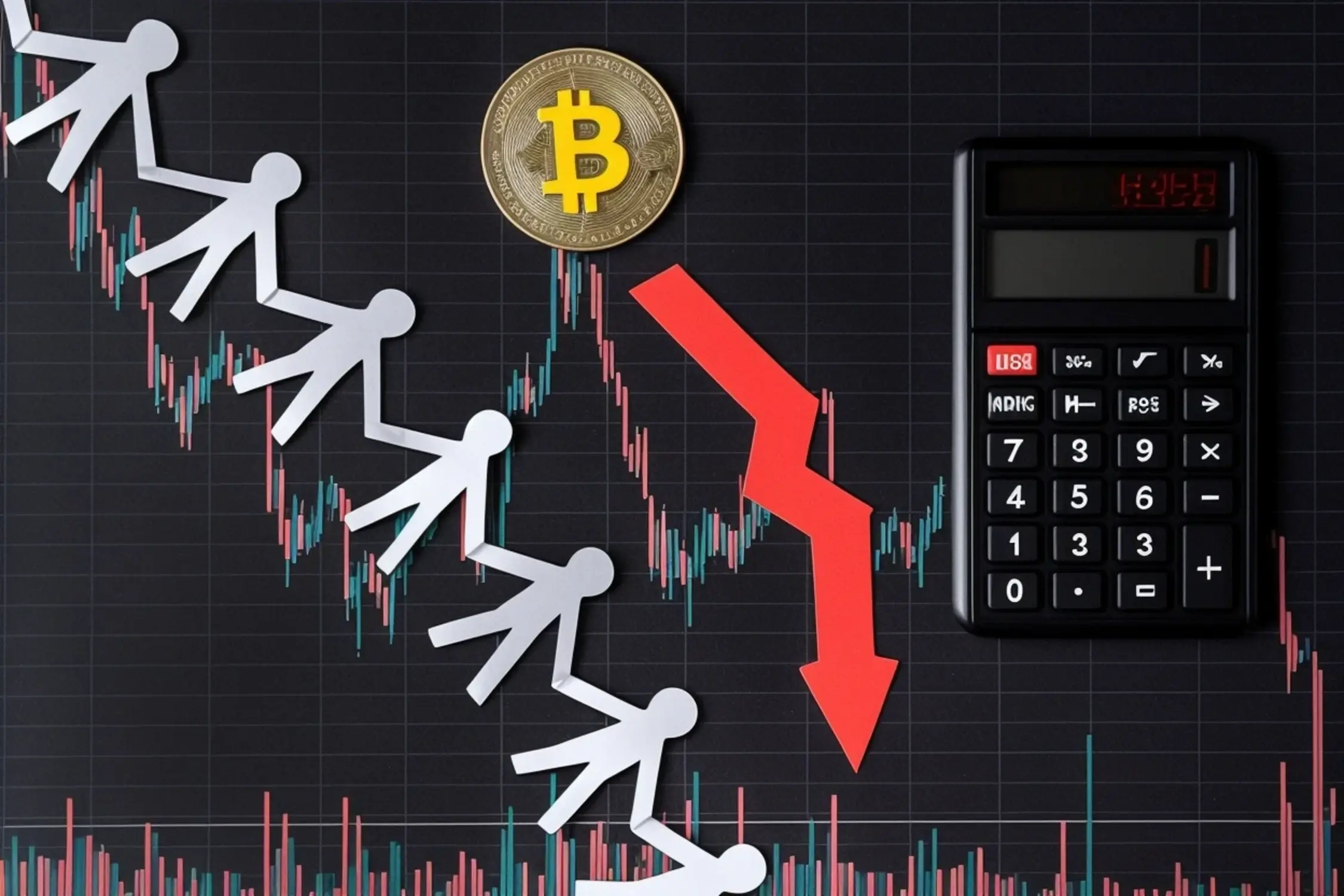The Hidden Truth About Bitcoin’s Impact on the Global Economy
With Bitcoin’s recent plunge, the global economic landscape is shifting dramatically. Understanding Bitcoin’s impact on the economy is crucial for investors and policymakers alike, as the cryptocurrency market faces increasing volatility and regulatory scrutiny.
Significance of Bitcoin’s Plunge in Today’s Economy
Bitcoin’s recent fall has been significant, affecting investor sentiment and broader economic conditions. The decreasing value of Bitcoin has led to a considerable drop in market confidence. This decline is reflected in the overall crypto market, where many traders are experiencing heightened anxiety, leading to a sell-off in both Bitcoin and altcoins. According to recent reports, Bitcoin lost over 30% of its value within November alone.
The significance of this plunge cannot be overstated. Fluctuations in Bitcoin prices often correlate with investor confidence across various markets. The relationship between Bitcoin and traditional economic indicators, such as the stock market, highlights how closely intertwined they are. During downturns, Bitcoin often acts as a bellwether for broader economic stability. When Bitcoin plunges, it can lead to a ripple effect, causing declines in equity markets as seen recently when the Dow Jones experienced a reversal linked to Bitcoin’s movements (fortune).
Current State of the Crypto Market Decline
The current state of the crypto market exhibits severe volatility, exacerbated by forced liquidations and significant price movements. Recent statistics show that Bitcoin’s price has flirted with record lows, impacting its market capitalization, which has now slipped below notable thresholds. Reports indicate that the global crypto market shed $1 trillion in value within weeks, underscoring the depth of this crypto market decline (recent analysis).
Forced liquidations are a critical factor in Bitcoin’s current market decline. When prices fall sharply, margin calls lead to enforced selling, further driving down prices. This situation has created a vulnerable state where any stabilization in the market is quickly undone by fresh supply entering the market. Market capitalization has consistently stayed close to the $3 trillion mark, indicating extreme fear among traders as they react to the volatility surrounding Bitcoin and other digital currencies.
Economic Trends Linked to Bitcoin’s Volatility
The economic trends associated with Bitcoin’s volatility are intricate and multifaceted. The correlation between Bitcoin prices and stock market fluctuations can be stark, particularly in technology sectors. Analysts confirm a strong connection, as a significant drop in Bitcoin often leads to increased selling pressure on tech stocks (fortune).
In addition, regulatory impacts play a vital role in shaping institutional investor behavior. As regulation around cryptocurrencies tightens, institutions may become more hesitant to invest, leading to market shifts. This hesitance can further exacerbate volatility, as market sentiment swings based on perceived policy changes. Furthermore, Bitcoin’s price movements are heavily influenced by trader sentiment. Fear and greed often dictate decision-making, leading to volatile market reactions.
Analyzing Institutional Selling Effects on Bitcoin
Institutional selling has been a prominent force driving Bitcoin’s current downward trajectory. Outflows from Bitcoin exchange-traded funds (ETFs) illustrate the worry among large investors. Data shows that US-listed Bitcoin ETFs recorded net outflows of approximately $3 billion in November, reflecting widespread concern about Bitcoin’s future (recent reports).
The volatility driven by institutional selling can create a cascading effect, amplifying market instability. Institutions help stabilize the market during bullish periods, but during downturns, their selling can substantially increase downward pressure. Case studies show that several major financial entities have reconsidered their positions in Bitcoin, leading to increased market fluctuations.

Fear and Sentiment: The Driving Forces
Understanding fear and sentiment is crucial for navigating the current Bitcoin landscape. Traders often react emotionally to price fluctuations, leading to decisions that can spark further volatility. The fear surrounding Bitcoin’s decline is palpable, creating a psychological impact that users must navigate. Many traders employ strategies to combat fear, such as setting stop-loss orders or diversifying their portfolios to mitigate risks.
Psychological Impact on Crypto Market Dynamics
The psychological aspects of investing can significantly influence market movements. Trading strategies often stem from fear of missing out (FOMO) or fear of loss, leading to erratic buying and selling patterns. As Bitcoin plunges, investor psychology plays a pivotal role in shaping market dynamics. Understanding these patterns can be invaluable for traders looking to maintain positions in turbulent times.
Future Considerations for Bitcoin Market Analysis
As analysts look toward the future, they must consider potential scenarios for recovery or further declines. While Bitcoin’s recent plunge indicates substantial worries among investors, the cryptocurrency market has a history of resilience. Economic policies will certainly play a part in Bitcoin’s trajectory, as central bank decisions may influence investor behavior in the coming months.
Recommendations for Investors
1. Stay Informed: Monitor market developments to respond effectively to volatility.
2. Diversify: Spread investments to reduce risk exposure.
3. Cautious Positioning: Consider maintaining cash reserves for potential buying opportunities during price dips.
Conclusion: Navigating the Economic Impact of Bitcoin
The importance of understanding Bitcoin’s role in the global economy cannot be understated. As it faces extreme volatility, investors and policymakers must adapt their strategies to the shifting landscape. Awareness of market indicators and sentiments will be crucial for navigating this uncertainty effectively. Proactive engagement and informed decisions may pave the way for profitable opportunities even in a turbulent market environment.


